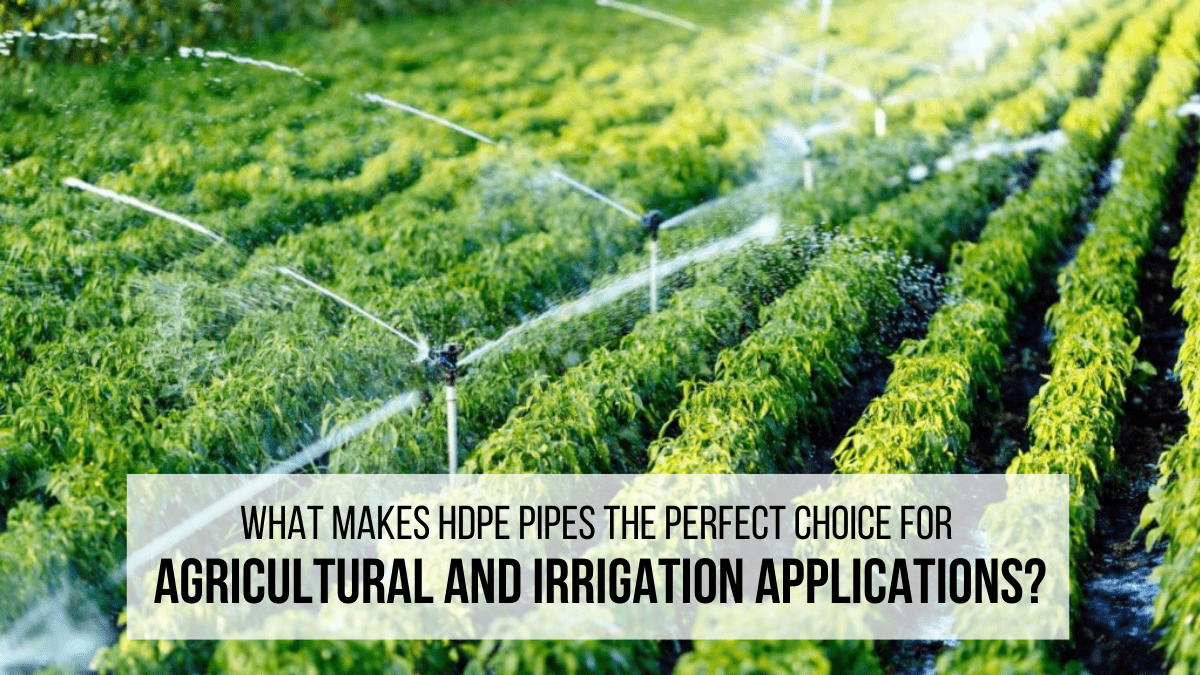Owing to their flexibility properties, HDPE Pipes have popularly found their use in industrial and agricultural sectors for the purpose of transferring fluid or gases. These plastic pipes are apt replacements for age-old concrete or steel pipelines. Manufactured from high-density polyethylene, these pipes are highly impermeable and this quality makes them suitable for high-pressure pipelines.
Over the years, HDPE Pipes have found multiple applications. From usage in water and gas mains, sewer mains, rural irrigation, fire system supply lines, drainage pipes and many more these pipes can be melted and reformed and this makes them rugged, flexible and long-lasting. These pipes are best suited for agriculture and irrigation applications because of their toughness, resistance to strong chemicals and also to corrosion. They along with factors like low weight, cost-effectiveness and durability have contributed to its ever-growing need.
Reasons why HDPE Pipes are perfect for agricultural and irrigation purposes
No piping fatigue
HDPE pipes are incredibly fatigue resistant. Unlike plastic pipes, these pipes are capable of handling the occasional and recurring surge of water flow that is very common in water distribution systems. These pipes are certainly ductile but are not rigid.
Saves Water without any water loss
HDPE pipes are leak-free joints as compared to other piping systems that are highly susceptible to water leakage owing to the types of joints that they use. HDPE pipes can be joined by heat and this results in permanent leak-free joints that help us save our most precious resource.
Convenient installation
HDPE Pipes offer flexibility along with tensile strength and that makes them one of the perfect choices for trenchless installation. This technology helps in easy installation under the river, lakes, ponds, and creeks with minimal public disruption.
High durability
HDPE pipes do not corrode or rust and this extends their life thereby resulting in long-term cost savings. With a service ranging from 50-100 years, HDPE pipes become the most ideal solution depending on usage, installation and project design.
Environment–friendly
Keeping aside the physical attributes mentioned above, HDPE pipes have minimal impact on the environment as they do not emit any hazardous levels of toxins during the manufacturing process. Also, these can be easily recycled back into non-pressure piping applications.
The outstanding performance of HDPE pipes always ensures that the consumers get clean and safe potable water. While in the case of other pipes there are high chances of having leaks that might lead to more usage of electricity to process and pump water, HDPE ensures zero leaks. This reduces the need for electricity, which helps the consumers save utility costs and all these together, make HDPE the ideal choice for agricultural and irrigation applications.


